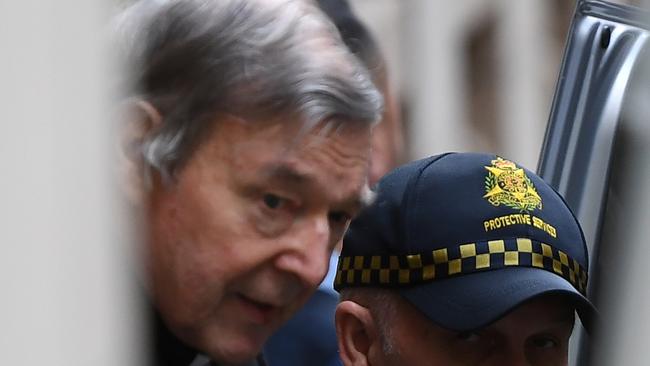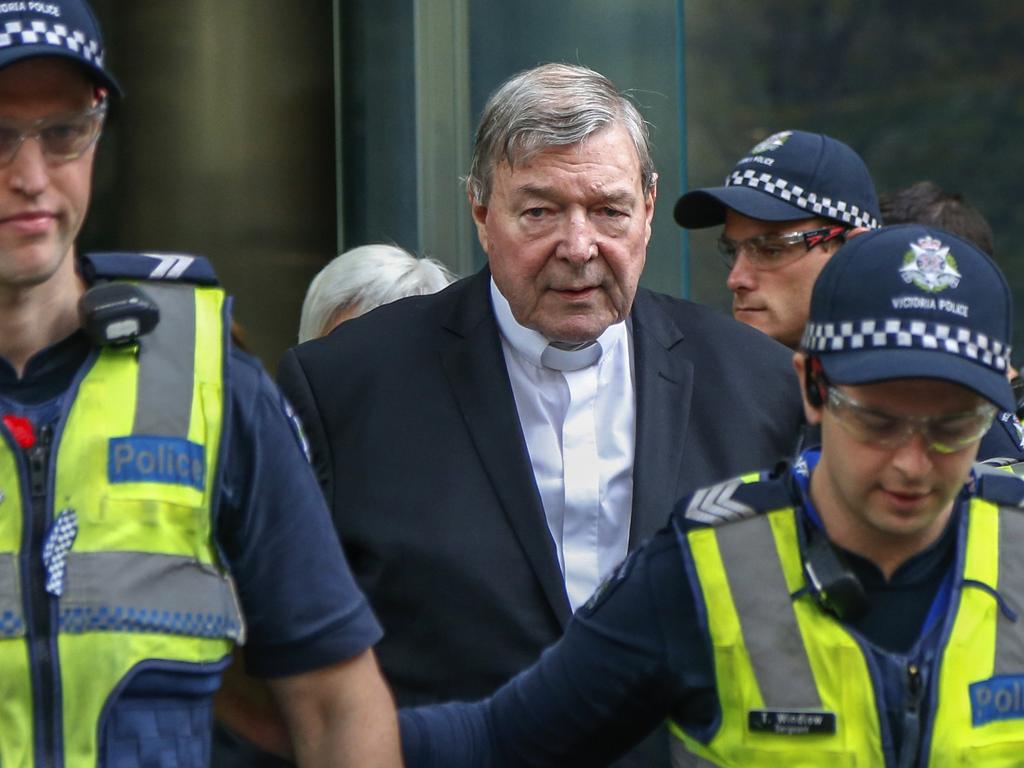George Pell appeal: Times were not exact, DPP admits
The High Court will consider acquitting George Pell of sexual abuse as the prosecution changed its timeframe for the assaults.

The High Court will consider acquitting George Pell of sexually abusing two choirboys as the prosecution changed its timeframe for when the assaults could have occurred.
The full bench was asked on Thursday to acquit Pell, 78, of five charges of molesting the two 13-year-olds in 1996 and 1997 while archbishop of Melbourne, but the matter also could be referred back to the Victorian Court of Appeal.
The High Court has asked for further submissions from the parties but experts are predicting a possible acquittal as Bret Walker SC, for Pell, effectively asked the full bench to free his client.
Mr Walker excoriated the prosecution, accusing it of changing the parameters of the case and attempting to massage the facts to fit the legal narrative.
Victorian Director of Public Prosecutions Kerri Judd QC faced a torrid day before the full bench, peppered with questions about the veracity of the facts that led to Pell’s six-year jail sentence, which was delivered a year ago.
Supporters hope the cardinal could be freed within weeks but there were discussions in court about the matter being referred back to the Court of Appeal, which could delay by months any review of the decision.
Mr Walker savaged the prosecutors’ conduct, for what he called “an improvised and rickety construction of a crown case to make something fit that will not fit’’. He said the crown had delivered a “grotesque version of the reversal of onus of proof’’ and that by showing it was possible Pell might not have been on the steps of the cathedral, had proved his guilt “beyond reasonable doubt’’.
“All the crown had to do is prove the opposite,’’ he said.
Ms Judd stunned the court when she abandoned the prosecution’s position over the amount of time that private prayer was held for after Solemn Mass.
She said the five- to six-minute timeframe, which the prosecution claimed gave the opportunity to offend, may actually have been longer, depending on what unfolded in the cathedral on the day.
On the amount of time allowed for private prayer, Ms Judd said: “They are approximate times. It was not a precise five or six minutes.’’ She urged the court not to tie the offending to a specific time, arguing that events in the cathedral were fluid.
It was not clear from Ms Judd exactly when Pell was supposed to have offended, although it had previously been stated that he assaulted the boys after the procession had ended and he returned to change in the sacristy.
The five- to six-minute timeframe was put to the jury and, until Thursday, was at the centre of the prosecution narrative.
Ms Judd also conceded that evidence of George Pell’s right-hand man, Monsignor Charles Portelli, when viewed on its own, could create enough doubt to prevent Pell’s convictions.
But she urged the court to view the case’s evidence in its entirety when considering the plausibility of Pell’s offending. Ms Judd outlined a series of reasons why she believed the court should not place excessive weight on Monsignor Portelli’s evidence, which was that it was his practice to be by Pell’s side in the cathedral whenever Pell was robed.
“Yes, I do accept that when you look at Monsignor Portelli on his own we may not be able to negate this to the standard we need to,’’ she said.
“But when you look at the whole of the evidence, it does.’’
Ms Judd said one of the strongest pieces of evidence proving Pell’s guilt was the fact the complainant knew specific details about the sacristy at St Patrick’s — the scene of the alleged sexual abuse and a room that was off-limits to the choirboys.
But judge Geoffrey Nettle probed whether this information specifically proved Pell had been in the room at the time the alleged offence was committed.
Chief judge Susan Kiefel also weighed in, questioning that while this showed the complainant may have entered the sacristy at some point in time, “does it ever go further than that?”.
Mr Walker seized on Ms Judd’s argument, declaring that nothing about the complainant’s accurate descriptions of the room proved Pell was also there and committed the abuse.
There were a series of other abuse allegations from the Ballarat diocese that did not go to trial.






